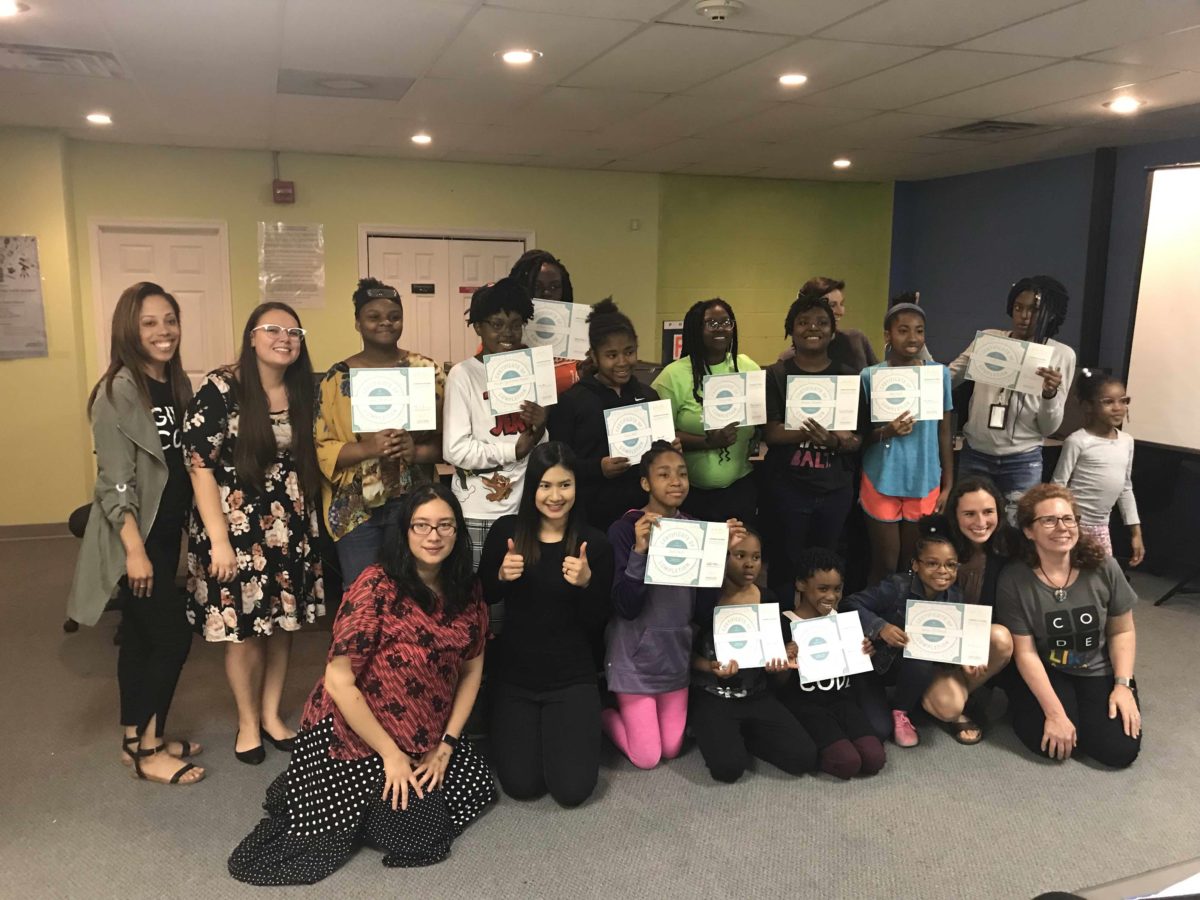At the Neighborhood Cyber Center located next to Upton’s Union Baptist Church, a group of girls spent a recent Saturday showing websites they made, and recounting the skills they used.
Asked about what they learned by facilitator Jennifer Jones, they talked web development: CSS. gifs. Troubleshooting. Those were just a few.
As indicated by the certificates and cake handed out following the presentations, it was the final day of the 15-week spring session for the group, called Girls Who Code at Beloved Community Services Corporation. It meets at the center, which was built next to the historic church and is overseen by its leaders.
Local clubs around the country operate under the banner of Girls Who Code, a national nonprofit seeking to close the gender gap in tech. Jones, who began coding in recent years, said she joined as part of efforts to encourage girls interested in tech: “It’s not this thing that’s not for them. It’s for everyone.”
About a dozen girls attend the weekly meetings, which are held for about two hours on Saturdays. Separate lessons are offered for third through fifth graders and sixth through 12th graders; CSS, HTML and some Python among the skills taught. They learn with resources such as code.org, Scratch and codeacademy.
Jones is joined by a wider group of technologists who volunteer as facilitators, including Chandra Knabel, Analilia Fierro, Rachada “Bay” Chairangsaris, Imani Joly, Kathleen Hathaway, Stephanie Vizzi and Paige Finkelstein.
For inspiration, the group also seeks to provide a chance for girls to meet women working in technology. The club hosted a series of speakers, and Vizzi and Finkelstein, who work as developers at Canton dev agency SmartLogic, were among those that addressed the group. They wanted to keep participating, and so became facilitators.
During other sessions, there were trips to the area’s tech spaces. They made an appearance at GiveBackHack inside Allovue’s offices in February, and in April visited the University of Maryland College Park for a glimpse of Maryland Day and the tech development on campus.
Overall, the goal is to provide a space to test out new things. Rather than teaching by explaining everything up front, facilitators assist when needed as the students figure things out.
“My main goal is really that they’re comfortable enough just to try it,” Jones said.
That approach is appealing to Rev. Alvin C. Hathaway Sr., the senior pastor of Union Baptist Church.
Outfitted with the computers and other tech tools, as well as whiteboard walls, the Neighborhood Cyber Center is designed to provide access for the community, he said.
“We’ve got to get access available to young people and we’ve got to do it in nontraditional ways,” he said.
After attending a computer science education-focused bill signing event in which Girls Who Code leaders talked about expanding in the state, he wanted to bring a local group to Upton as part of that effort.
“They’re learning skills that will last a lifetime,” Hathaway said.
Join the conversation!
Find news, events, jobs and people who share your interests on Technical.ly's open community Slack

Baltimore daily roundup: Medtech made in Baltimore; Sen. Sanders visits Morgan State; Humane Ai review debate

Baltimore daily roundup: The city's new esports lab; a conference in Wilmington; GBC reports $4B of economic activity

Baltimore daily roundup: Find your next coworking space; sea turtle legislation; Dali raided and sued


